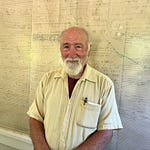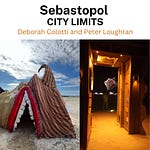Micah and Michelle Sawyer join me to talk about fentanyl, a drug that’s become more widely available illegally in Sonoma County and elsewhere across the country. The Sawyers lost their 22-year old son, Micah, Jr to a fentanyl overdose in 2019. Since then, they have been letting others know about how prevalent fentanyl is, how addictive and deadly it is and how having drug Narcan widely available can prevent fentanyl overdose deaths.
Micah and Michelle were named Locals Who Make a Difference by the City of Sebastopol in October 2021. They were also recognized by the KPIX Jefferson Award in January 2023.
Links:
Transcript
Dale: Fentanyl is a dangerous and deadly drug. It is a synthetic opioid originally prescribed legally as a painkiller, but increasingly this drug has been easier to get illicitly and fentanyl is also mixed into all kinds of drugs in pill and powder form, so that many users are unaware that they are taking it. Most drugs, authorities say, that anyone can buy illegally, will have fentanyl in them. The question is how much.
Last year, according to the Sonoma County District Attorney's office, there were 63 fentanyl overdose deaths in Sonoma County through November. Fentanyl overdoses take the lives of habitual drug users, but they are also taking the lives of people who are experimenting with drugs maybe for the first time.
And that's why the DA's office has put up billboards around Sonoma County saying one pill can kill. Narcan is a nasal spray that can be administered to anyone experiencing a fentanyl overdose and it can save their life.
My guests today are Micah and Michelle Sawyer of Sebastopol, who lost their son to a Fentanyl overdose in 2019. Micah Jr. was just 22 years old. The Sawyers created the nonprofit Micah's Hugs to focus efforts on awareness of the dangers of Fentanyl and to help prevent fentanyl overdose deaths by making Narcan more widely available.
Micah: My name is Micah Sawyer and I'm here with my wife Michelle Sawyer. And we started a nonprofit, Micah's Hugs almost three years ago, after we lost my son to a fentanyl overdose, after struggling for a while with an addiction problem. And we're just really looking for a way to try to do something to help with this pretty major problem that we saw firsthand and struggled through firsthand, and are still struggling through firsthand, but trying to help other people in any way we can. I'm just looking for ways that we can fit in where it feels like there's need.
Dale: Michelle you've been involved you probably have a lot of day-to-day responsibility for this, right?
Michelle: Yeah. I'm kinda the behind the scenes person. Micah is our spokesperson. I helped get the nonprofit started and try to work with grants and get a lot of the funding and do a lot of the clerical work.
Micah: She's so far gotten over half a million dollars worth of grants for purchasing the Narcan that we distribute out in the community, so it's really great.
Dale: We read about fentanyl in the newspaper. We read about drugs. To some degree, you might think that doesn't happen here in Sebastopol, that doesn't happen to kids going to Analy. It doesn't happen to kids going to Santa Rosa High School, but that's not true,
Micah: No. Unfortunately, there's been some pretty big problems with it at Analy and pretty locally, a lot of it with pills and the fake prescription pills that contain fentanyl, going around the schools. I feel it's like there's outbreaks that happen here and there, and the problem goes up and down and up and down, but it's a big problem. And we know numerous kids from Analy that have passed away because of fentanyl overdoses.
Dale: How do they get involved in this? I guess some parents might think, like marijuana's the thing that's really accessible today. But geez, this is a different level of drug.
Micah: Yeah, it's a very different level of drug. And Micah didn't get involved through an injury, but a lot of kids actually do, maybe through a sports injury where they get on painkillers to start with and then get addicted to those painkillers and then have a hard time coming off of them.
And that's a big reason why kids are buying these fake prescription pills because they think they're the same painkillers that they've been getting from their doctors, but they're actually fake. They look like the real thing. They're pressed, like the real thing. There was actually a bust in Sebastopol from some people that were pressing them right here in Sebastopol and making them, manufacturing them and then selling them to the kids in the community.
So it's pretty local and it doesn't take a giant manufacturing thing.
Dale: So do the kids buy them thinking they're addressing a pain problem? Or something else.
Micah: I think they get started as a pain problem when they start taking them and then once they realize they become hooked, addicted to them, both physically and mentally, and then they can't get them from their doctor anymore. So they continue looking for that same thing to feed their addiction.
My son didn't actually get started through a pain thing. I think he was just experimenting and looking for some sort-- the fentanyl is really a painkiller and it's a physical painkiller, but it's also a mental painkiller.
So especially when kids are going through hard times and feeling a lot of the struggles that we all felt as teenagers, it's a way to cope with the pain and take away that pain that they're feeling. Yeah, my son started a little different than the other kids that started with pain pills, he did tell me at one time that he tried heroin for the first time at 14.
Dale: And you didn't know that at the time?
Micah: No, I didn't know that until after he graduated high school.
Dale: So you could say that there, there's locally manufactured fentanyl here. It comes from other parts of the state and world, but how is it being distributed?
Micah: When I was starting to look into a lot when my son was struggling with his addiction and he had a lot of friends that were addicts and they were all desperately looking for their next fix, and they all really helped each other.
So I really learned a lot and came to this conclusion that I didn't find this really big drug dealer preying on my son. But what I found was a whole bunch of struggling young men and kids that were all in their minds, they were looking out for each other, trying to help each other get what they needed to get through their fix.
And they would all look for different sources here and there, and they'd pop up all over the place. They'd find somebody has a stash over here and they'd drive somewhere and bring back whatever they found for their friends to help them with it or wherever it happened to be. It's starting to now actually become pretty big to just be able to order them through the mail.
The fentanyl is so potent and so powerful. You can buy a tiny, little envelope package that has a thousand doses in that and it can just be sent through the mail.
Michelle: There's also even a larger problem right now than that because there's that's lot of people are doing party drugs and they don't even know that fentanyl is in there.
So like the coke and meth addicts are passing away, overdosing, because they don't realize it's in there. That's actually the biggest craze going on right now. Like the line, the one pill can kill. Not knowing it's in there is even scarier.
Micah: We're finding out recently there's been a whole bunch of these new pills going around that have fentanyl, but they're colored so they look like little candies and know they're being distributed out to the kids. These colored little pills that seem fun to play with.
Dale: Talk about Micah Jr. a bit, which I think is important because whether it's Analy or other schools, you say we know the kids that do drugs and they look like this and they, act like this. Micah wasn't one of those kids.
Micah: And that's an important message for us, we've been trying to get out to reduce that stigma for people to realize that you huge portion of the people that are struggling are not the people you think they are, the people that you would point to.
Him and I were super active in all sorts of sports activities, hunting, fishing, motorcycle riding, and we did everything together. Scuba diving was a passion for him. Then he got super into football. He was captain of the football team for two years. He was the strongest kid on the football team. He held the record for the most weights lifted in whatever weightlifting competition they were in. And during that time, he was super popular and everybody thought he was just going places and he was most likely to succeed in some ways, sort of an idea that people thought about him and everybody looked up to him and they didn't realize what a struggle he was going through.
And I think it was he tried hard to live up to that idea that people had about him, and I think that was a struggle too. He managed to maintain what he was doing through high school, but after high school it just became harder and harder, and his struggles became harder and he started to slip into irresponsible habits and you started to see that something was going on. It wasn't until after high school that I realized that he was struggling with some sort of addiction and tried to find ways to help him.
It's really hard to set a date as to when he became an addict, but I think, he really started experimenting with things in high school and then, at what point does experimenting become much more of a problem, become substance abuse, become full blown addiction sort of a thing.
I know through high school that he was experimenting with different substances and starting to struggle and then it was a slow decline from there, from where, like I said, you started to notice habits that weren't great and then he started to notice habits that were really bad.
And then for a while he ended up just living in his truck and not really being able to function very well. There was a period of about seven months in the end where he had kicked the habit and was doing really well. He did get a job and he was living with his mom, and that's at the period, at the end of that seven months where he had a relapse.
Most of the time that he was using, he was actually smoking black tar heroin. He had a phobia for needles, so he never injected anything. And then in the end, when he finally died, it was from smoking black tar heroin that was laced with fentanyl. I still don't know whether he knew there was fentanyl in it at that time.
I believe most of the addicts were trying to avoid fentanyl, but it was getting laced into things. Today it's really almost impossible to find heroin on the streets, and the opioid addicts now are doing straight fentanyl, and they know that it's fentanyl and that's what they want to be doing. So it's changed quite a bit since Micah passed away.
Dale: And what makes it so deadly?
Micah: One is its addictiveness. It's super addictive. So people get hooked pretty fast. But also the potency of it. It's so strong. I think it's hard to regulate in doses that somebody's taking.
If people were getting a pharmaceutical dose that was perfectly regulated every time, I think that the deaths at least would go way, way down. Maybe not the addiction, but the deaths. And so I've read stories about fentanyl on the streets that's ranged from 8% pure fentanyl to 95% pure fentanyl.
So somebody's used to taking something that's 8% pure fentanyl, and then the next batch they get is 95% pure and they take the same dose. It's gonna, it's gonna kill them.
Dale: Partially in response to Micah's death-- I saw something on your website.-- you wanted to tell his story. You wanted other kids like him to learn from him.
Micah: Yeah, absolutely.
Dale: And so what did you start to do?
Micah: The very first thing I did is actually we started getting fentanyl test strips and we started getting them out into the community. One of Micah's best friends and his ex-girlfriend went missing and we made a mission to find them and it took us a while and we finally found them in a homeless tent encampment in Oakland.
And they were struggling quite a bit and we made this call that we would go down and get fentanyl test strips and give it out to people in their tent encampment. And they told us right away, and this was the first time we learned of, and we were shocked by the fact that they said we know we're doing fentanyl and it's all straight fentanyl, so we don't really need your, your test strips, so thank you.
So we just started looking to how we could help and where we could help. And then I started thinking about when Micah was struggling, I was buying Narcan, which is the drug that brings somebody back from an opioid overdose. And I used to pay $150 a box for it.
And what I realized looking out in the communities of people that were addicts or parents of people that were struggling is many of them didn't know about it. Many of them didn't have it on hand or couldn't afford to pay the money for it. So we really thought that was a great place to try to get this introduced into our community.
And that's where Michelle started looking into grants that were available and ended up getting a grant. I think our first grant was for 1800 boxes. There's two doses in the box, so that's 3,600 doses of Narcan. That was our first grant that we started distributing. That really seemed to be where things were missing.
And a lot of people didn't know about it. A lot of people didn't realize how much it could help and what it could do. We watched a documentary recently was about safe injection sites, and they said that nobody has ever died at a safe injection site. They've overdosed many times. Because they have Narcan, because they have oxygen and they know what to do if somebody overdoses, they never end up dying.
Dale: And so your strategy has been to set up distribution of Narcan. Where are you putting it?
Michelle: I think any place we can find. A lot of the firehouses offer their locations. So we've been trying to go throughout the county, just hitting different locations.
And there's once a month at the library here locally in Sebastopol, they're doing like a community day. And so we've been invited there and we'll be back there next week. And so we'll have a little booth there. So if people wanna come get Narcan, they can. We have people actually reached out to us, wanting it.
And so I've even mailed some to people, but Narcan really should be in everyone's hands, always in the past they said everyone should be CPR certified or trained. I think they should be combined with it, everybody should have box of Narcan.
It's a nasal spray, so it's just a little click of a button in your nose and it's usually can take anywhere from a minute or two minutes to take effect. And there have been people that have had to take almost 12 doses because they've been so heavily drugged and in the state of overdose.
We train people how to use it and we, we always say call 911 because once you bring them back, they could re-overdose because there's so much in their system. They need medical attention as well.
Micah: Unfortunately, even the fire departments around here have been struggling to get enough. So we've actually been giving some out to the fire departments here, and Michelle started actually working with the local fire department to teach them how to write their own grant so they can get grants of their own to get it for free. So we're now trying to, fundraise to pay for it.
Michelle: The local brewery here in Sebastopol, they asked us to come and train their staff because especially for the party users that don't know, they might have fentanyl in their party product or whatever they're using.
We think a lot of bars and servers, they should all be trained and have actually Narcan on site. We've heard of a lot of people go and have a few drinks and then they might do some party drugs and overdose in the bathroom.
Dale: It makes me think that this is not just a teen, young adult thing. You're seeing it in the broader population.
Michelle: Absolutely. Yeah. Especially now that it's being involved in the party drugs.
Micah: For sure.
Michelle: Another age group is from the middle schoolers between 12 to 15 year olds is hitting high right now. A lot of it is because of the colored different drugs that look like candies and they're experimenting. But I know locally, even at Santa Rosa Middle School, they've had a couple kids overdose and actually pass, unfortunately. So it's really important to make sure the education at middle school is out there.
Dale: Do you do talks to schools or kids in assemblies about this?
Michelle: We're starting to get involved in it, but it's a little gray area with some schools because they're still learning about it. They don't understand If there's any legal actions or anything with it. So they're they're a little nervous about it, but we have been invited to a couple schools. We even had a parent of an Analy high school student. The kids wanted the training, so we went over for a day and spent a day with about 15 high schoolers and educated them and answered questions they had.
Micah: And part of the education we do is that Narcan is completely inert if you're not having an overdose. So there are no negative side effects. And if you make the mistake of giving it somebody who's not actually overdosing, it does nothing. So I think the more people learn that there's really no risks involved and there's no dangers, the more they accept it, but they're a little bit standoffish at first, if you're talking to their kids.
Michelle: And there's good Samaritan laws that protect you from it. So you're completely protected if you try, if you do and there's that little small chance that some someone does have an effect to it, you are protected. And so that's important to get out that message out there.
We've been trying to get a lot of people to be trained and like businesses and establishments and they're worried about the liability and they don't wanna have the product on hand. There's even another age category that hasn't been thought about and it's elderly people.
And we actually had an elderly lady come to our one of our trainings with her husband and she says, I'm on quite a few different pain medications. I want my husband to be trained on Narcan because what if I just mess up and take double the amount I was supposed to in one day just for age and forgetfulness.
Micah: And Narcan will work on any opioid with both, natural and synthetic. So heroin and morphine and most of the painkiller pills that are low opioids.
Dale: What are your goals? What do you wanna do now or in the future?
Micah: What we're trying to do now is just get as much awareness as we can out into the community, really train people and teach people and get them to accept that Narcan is a very important tool to have. And the fentanyl test strips as well we're trying to get out to the community and teach people how to use them, cause there are some dangers of not using them properly.
And then long-term goals, we're all over the place, but we do have big ideas and big thoughts. You wanna talk about some of that?
Michelle: One thing is the rehab facilities around here are limited and most people do like Micah Jr was in for 30 days and normally you're just detoxing them at 30 days.
So your frame of mind really isn't in a great space. So we'd like to actually have a place where you could even detox, or detox and rehab for anywhere from three months to a year or even longer. And even have on the facility to retrain people so that they could go out in the world and learn different trades and everything. Like maybe even, construction or culinary and different things like that. So as they're rehabbing, they're also working and then they could transition into outside of the rehab into real world.
Micah: You like to have something that's a little bit more flexible and understands that not everybody's for the typical, abstinence only or AA type of program. And not everybody fits into those programs. And I'm not putting them down because they have their place and they're great for some people, but not for everybody.
Dale: I talked to the local homeless outreach coordinator in Sebastopol and she was saying it was difficult to get someone to go into drug rehabilitation, but even when she'd get them to agree to go, that doesn't mean there's an opening in a facility.
Micah: I've talked to somebody recently that's struggling and they said they went to a rehab place and looking for help and they said you're not bad enough off yet to need our help. Wait till you're in the gutter and then come into full blown rehab.
We really feel there needs to be more help for people that are in the middle somewhere that aren't like ready to go sign up to live in rehab, full blown, and but are looking for something.
Michelle: Another big problem is a lot of people at homeless especially have animals because that's like their only friend and most places won't accept animals. We'd actually like to be out on property where we have even ranch animals and they could even maybe, possibly have their, their companion with them. That's so important to a lot of the people wanting treatment.
Micah: There's been a lot of success in some prison programs where they're bringing people out, working with animals. We've seen programs on horse training and dog training and stuff like that really give people a purpose. And so bringing something like that into sort of a rehabilitation situation seems like they could really work well too.
Dale: One last question? What kind of role does the police have in our community around, around this?
Michelle: That's our next venture, is we wanna really reach out to see how we can work further with them and also educate some of the law enforcement, because I think there's some, they're still a little more old school and they're not quite up to date with actually Narcan and there's a lot of, some judgment with people.
Micah: Michelle actually got a speeding ticket a while ago, which was fine; she deserved the speeding ticket, but the police officer that gave her the ticket saw a box of Narcan in the car and he said: "is there a reason why you have that?"
She explained, who we were and what we did. And then when he came back, she said, is there a problem that I had this? And he looked at her and he said there's only one type of person that would've that in their car, like judging her as an addict. And my first response was mad that he was judging her as an addict.
And my second response was even if she is an addict, shouldn't he be encouraging her to have the safe things that she needs to have as an addict and not putting her down for it.
Michelle: Yeah, and it wasn't Sebastopol police officers, no.
Dale: That's good.
Micah: But definitely thought it would be really good to start trying to maybe even. We may even work with Sebastopol police a little bit. That was a possibility that came up with somebody that we were talking with, but train police officers to try to help them understand more about it.
Dale: Thank you for your time today. I'd love to help you in any way I can. It's marvelous what you're doing and so important.
Micah: Great. Thank you. I think, you just, you're doing something like this and bringing some attention to what we're doing. It's wonderful.















Share this post